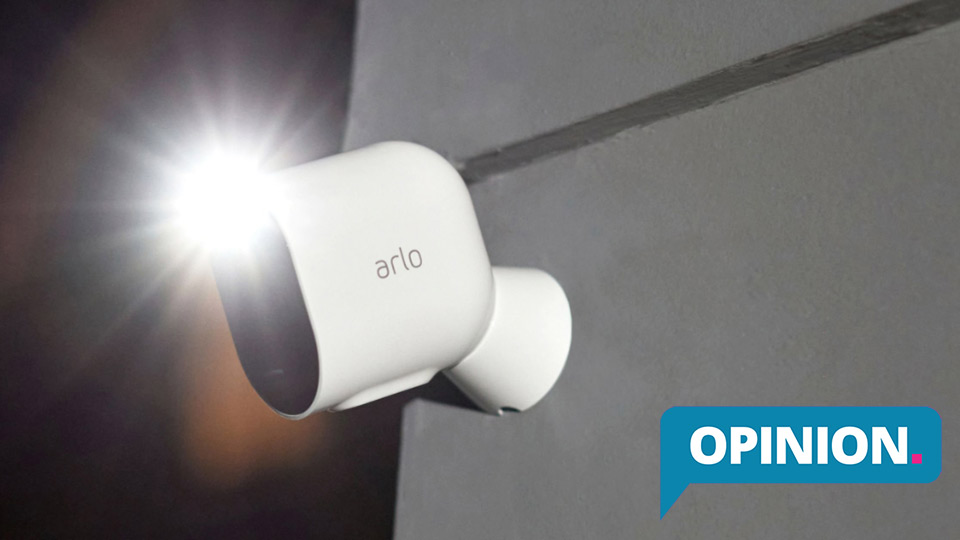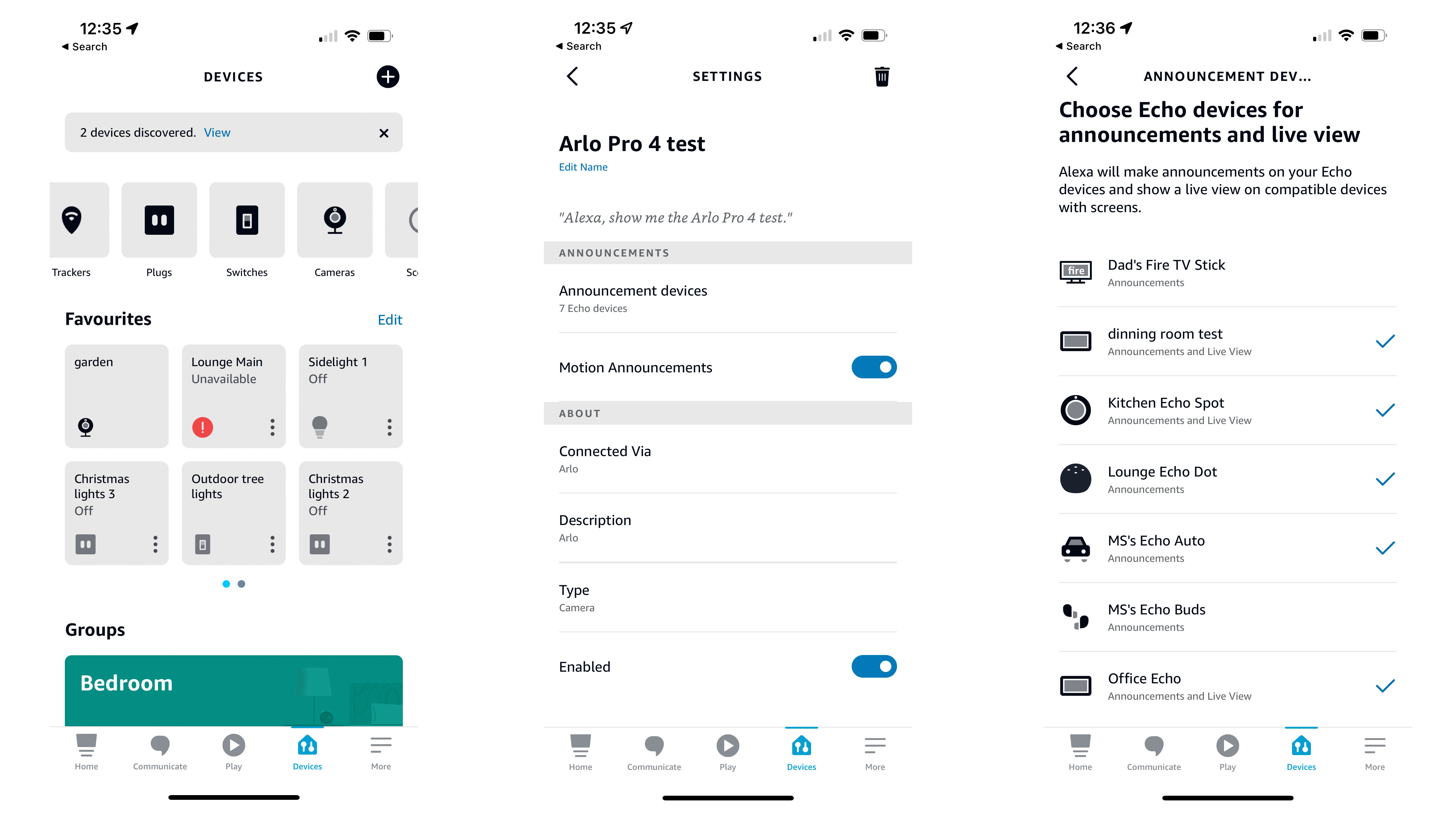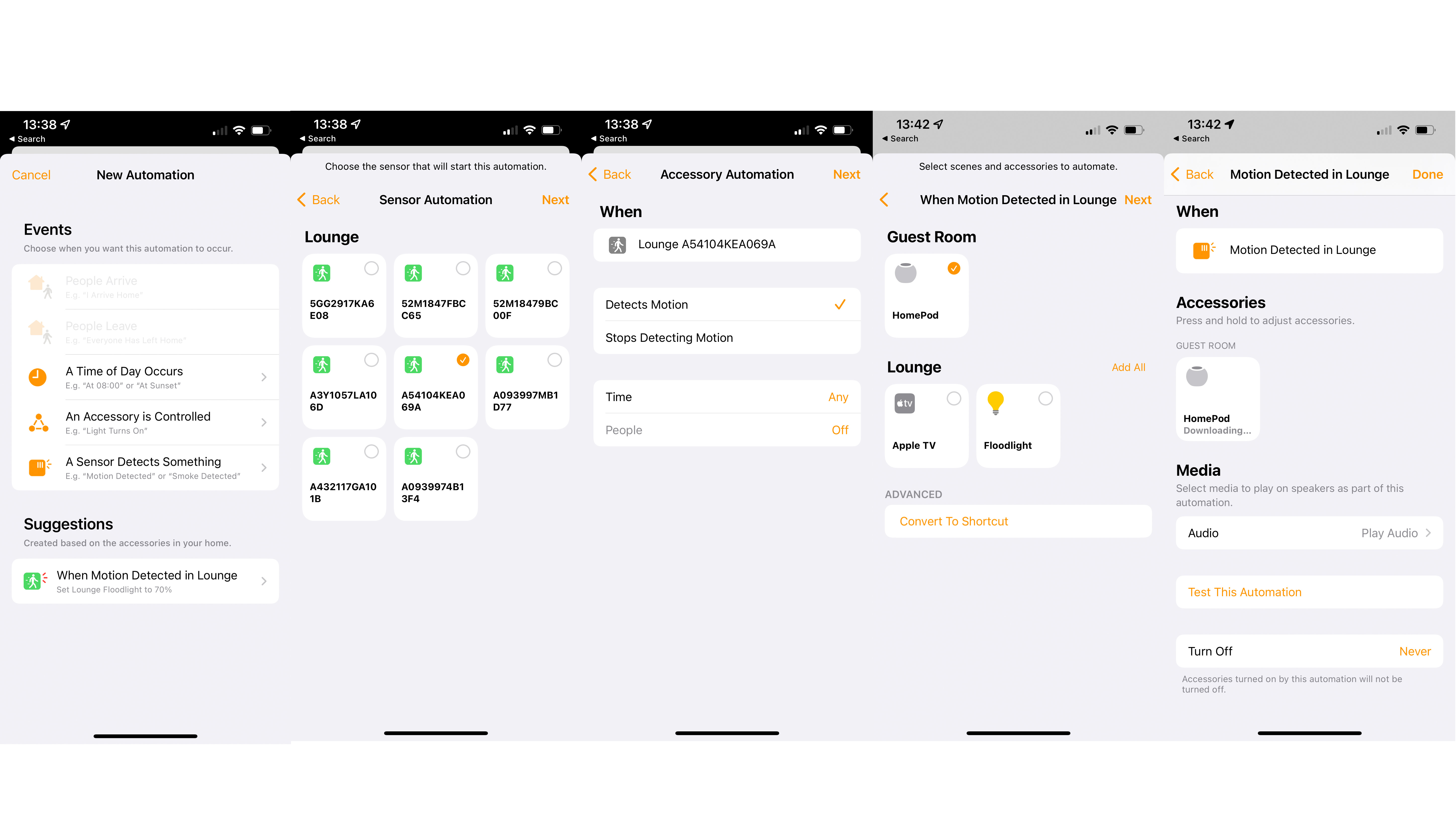A built-in alarm is a crucial home security cam feature. So why do so few have it?
Opinion: Not enough home security cameras have a built-in alarm that triggers when motion is detected

The best home security cameras are a great way to check that your property is safe and secure when you’re not around. They connect to your home Wi-Fi network and through a smartphone app let you see, and with the help of a microphone and speaker, speak to anyone in the camera’s field of view.
Many of us believe that the presence of smart security devices alone can be enough to discourage a would-be intruder - in fact, a former burglar confirmed that home security cameras do indeed deter crime. But, just the sight of a security camera isn’t always enough to dissuade someone from approaching your property.
A handful of home security cameras on the market have a built-in alarm that will trigger automatically when motion is detected. This is another way to deter would be intruders, but as far as we’re concerned its a feature that every home security camera should offer.
Chances are you’ve not bothered to check if your home security camera has a built-in alarm, and if it does, you probably haven’t even set it up to sound, but when it comes to deterring unwanted intruders, it could be your best weapon.
Best home security camera deals
Read on to find out just why we think a built-in alarm is needed on more home security cameras, or if we've already convinced you that a home security camera is your next home purchase, check out these great deals.
Security is a priority
I come from a fairly security-conscious family - for as long as I can remember my dad used old-fashioned timer plugs to make lights in the house switch on and off and set times when we were away on holiday to simulate occupancy and hopefully deter burglars.
A traditional CCTV system was always slightly out of his financial reach when I was a child, so when home security cameras started to appear on the market years later, it’s no surprise he was an early adopter of the technology that was more affordable and didn’t require wires running all over the house.
Get daily insight, inspiration and deals in your inbox
Sign up for breaking news, reviews, opinion, top tech deals, and more.
He has a Reolink Argus installed on an exterior wall at the front of the house, so its field of view covers the front door. He settled on this model because of the microSD card so he didn’t have to rely on a subscription service if he wanted to review footage captured at a later date.
He was so pleased with the camera that, when Reolink bought out the Argus 2 a few months later, he also invested in this for the rear garden - particularly as it has a rechargeable lithium-ion battery rather than relying on alkaline batteries.
Both cameras have a built-in alarm that can be triggered automatically when motion is detected. Initially, Dad didn’t use this feature at all, however, when some foxes began digging up flowers in the pots next to the front door, he decided to switch it on in a bid to deter them. Thankfully, it’s turned out to be a savior against more than just vermin....
Over the past couple of years, twice unwanted visitors have been caught on camera walking up to the front door in the early hours of the morning. However, as soon as the 80db alarm triggers, they run quickly away.
Whether this was an innocent mistake by an inebriated person that simply got the wrong house (I’ve definitely experienced that myself in my youth) or it was someone with more sinister intentions, it’s clear the alarm really does work in deterring anyone that approaches the front door.
Of course, an alarm triggering every time motion is detected could get annoying, for both Dad and his neighbors. So he set a schedule to ensure the camera only records video when motion is detected between the hours of 9pm to 7am.
Being retired, he is at home a lot of the time, and feels an intruder is more likely to try their luck under the cover of darkness - so this might not be the right solution for everyone and - frustratingly - most cameras don’t allow you to separate recording and alarm-scheduling.
What if your home security camera doesn’t have an alarm?
As we’ve already mentioned, frustratingly there are only a few home security cameras on the market that have has a built-in alarm. For example, you’ll find it on the Arlo Ultra 2 and the Arlo Pro 4, but not the previous version Arlo Pro 3. Meanwhile, many of Eufy’s models, such as the Eufy SoloCam S40 have a built-in alarm, but it can only be triggered manually not automatically.
So what can you do if your camera doesn’t have an alarm? If you have one of the best smart speakers or smart displays in your home, providing it is compatible with the security cameras in your home, you can set it so an announcement is made on the speaker every time motion is detected by the camera.
Just position one of your existing smart speakers and smart displays next to the front door, and turn the volume up.
An announcement is likely to have the same effect as an alarm on a would-be intruder, sending them running away as quickly as you can. You may think the sound would be muffled, but we’ve tried it using an Amazon Echo Show (1st generation) with volume at 75%. We placed the smart speaker just a few feet from the UPVC door backing on the outside wall and it can clearly be heard through the door.
How to set up an audible motion alert
Amazon’s Echo range of smart speakers are compatible with the widest range of home security cameras, including those from Ring and Blink - although given these are Amazon-owned companies this isn’t really a surprise - along with models from Arlo, Swann, Eufy and Canary.
To set this up, open the Alexa app and select the devices tabs at the bottom of the screen. At the top, you’ll see a selection of different device categories, so choose Cameras.
Now select the camera you want to get audible notifications from and switch the slider next to ‘Motion Announcements’ to ‘On’. Under the ‘Announcement Devices’ section, you can select which smart speakers and smart displays in your home will broadcast the announcement.
Next time motion is detected on the camera, the selected smart speakers and smart displays will announce “Motion detected on the ….” followed by the name you have given to the camera that detects the activity. This is a great hack to create your own alarm system that will provide an alert without having to have your smartphone to hand.

If you have a HomePod or HomePod Mini in your home, and have Homekit compatible security cameras - for example, many models in Arlo’s range along with those from Netatmo, Logitech and Eve work with Apple’s smart home system - then you can set up an automation in the home app that plays an audible alert.
However, it’s more fiddly than using Alexa-enabled speakers and requires an Apple Music subscription. In the Apple Home app, choose the Automation tab from the bottom of the screen, then select the + symbol from the top right hand corner and select Add Automation.
From the options displayed choose ‘A Sensor Detects Something’ and then select the security camera from those displayed and press ‘Next’.
Make sure ‘Detects Motion’ is ticked - you can also set up rules for when the motion detection ends - and press ‘Next’.
Select the HomePod you want the alert to be played on and again tap ‘Next’. Under the section marked ‘Media’ tap ‘Play Audio’ and then select ‘Choose Audio’.
From here you can select any track in your music library and even set a custom volume for it to be played at. Of course, most songs don’t sound like an alarm - but you could choose a track from this Sirens playlist instead. Once this is set, you can decide how long the audible alert should last before it switches off then press ‘Done’.

Those that have a Google smart speaker in their home, well, they have the most limited choice when it comes to audible motion alerts.
If you have a Google Nest speaker, such as the Nest Mini 2, you can get an audible alert when motion is detected, however this is only possible with an Arlo Pro 3, Arlo Pro 4 or its Essential range of home security cameras connected.
It’s also not a feature offered by Google’s own Nest range of cameras - although we hope to see it made available in the future.
It’s clear, whether you have a home security camera with a built-in alarm, or you need to spend some time pairing your smart speaker with your smart security camera to create your own audible alert that triggers when motion is detected, sound really does help in deterring potential intruders.
Carrie-Ann Skinner was formerly Homes Editor at TechRadar, and has more than two decades of experience in both online and print journalism, with 13 years of that spent covering all-things tech. Carrie specializes in smart home devices such as smart plugs and smart lights, as well as large and small appliances including vacuum cleaners, air fryers, stand mixers, and coffee machines. Carrie is now a copy editor at PWC.
